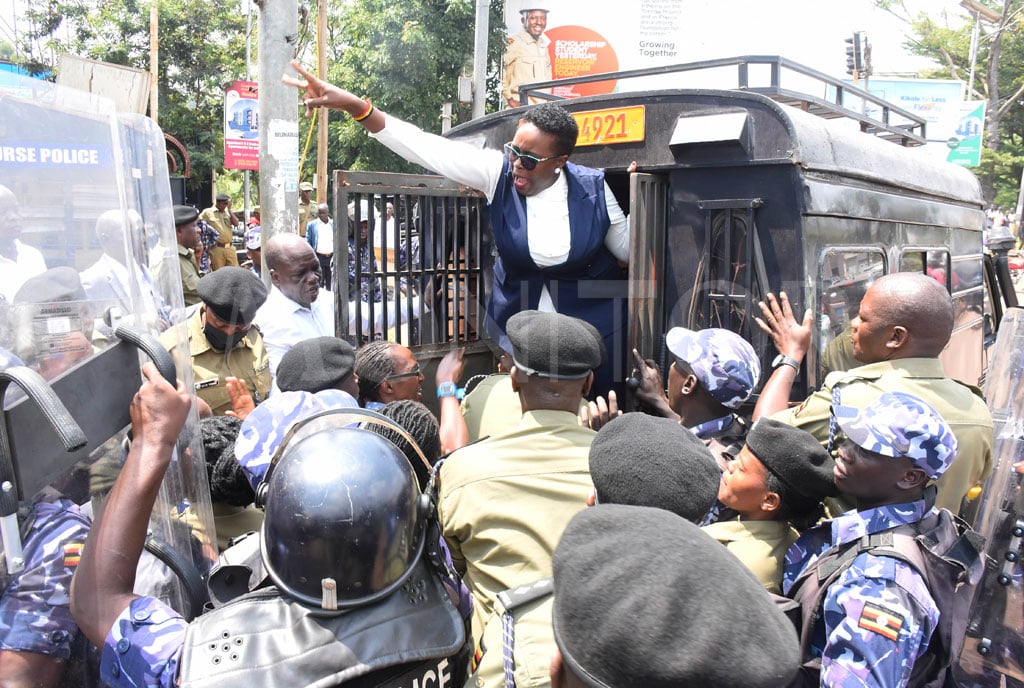
Author: Asuman Bisiika. PHOTO/FILE
Ugandans seem to be unanimous on the need for change. But some proposals for change look selfish and partisan. The Parliament has been weakened by accusations of corruption and it doesn't have the moral and ideological resourcefulness to lead in the journey to change.
Yet until otherwise provided to the contrary, Parliament is and will remain the vortex of any process leading to the adoption of the proposals of change. It is and will be the lead agency to codify all the idealism into enforceable compacts like legislative and constitutional regimes.
Uganda is going for the 2026 Elections under political circumstances that offer “no cheer and hope” for the changes Ugandans crave.
****
The reader may have heard that FDC as we know it was dissolved; and thereafter a process of forming a new party was triggered. The name of the new party is Peoples Front for Freedom. We shouldn't dwell on FDCs internal power struggles and wrangles that led to the formation of the new party, should we? That's why I beg to be allowed to call it “Besigye's party”. The dissolution of the party was psy-op on FDC-Najja. And they seem to have fallen for it. Otherwise, our friends at FDC-Katonga know they cannot take that Declaration of Dissolution to the regulator for endorsement. Otherwise, FDC-Katonga are as good as a group of individuals forming a new political party (nothing much, nothing less). I would not expect any comment or protest from FDC-Najja (save for seizing the opportunity to appear before media).
However, the act of dissolving a political party (de jure or de facto) sounds novel and curious in Uganda. My fear is that it may have set precedence other political party leaders could evoke. I have been imagining Mr Museveni dissolving NRM and forming a new political party. Don't laugh…!
And by the way, what happened to Uganda Patriotic Movement (UPM)? Was it formally dissolved (since its leadership decamped and formed another political party)? And so, UPM (led by Mr Museveni) in which Ugandans invested so much hope and energy was abandoned or dissolved “just like that” as Ugandans like to say.
Back to the Peoples Front for Freedom (I predicted the name by way; just missing the freedom part of the name). What impact can Peoples Front for Freedom bring to the table in 2026? Who are the likely presidential candidates? Expecting Buganda to be a battleground region in the parliamentary elections, how will the voters align themselves with, the Peoples Front, National Unity Platform and NRM?
*****
Many people have called for the reduction of the size of Parliament. A very legitimate call, is it not? To reduce the size of the parliament, we have a proposal on constituting the Parliament. The best way to reduce the size of Parliament is having proportional representation.
We propose a Parliament with 100 (one hundred) MPs to be nominated by political parties. This is how: all political parties participating in the elections would offer or declare 100 parliamentary nominees. In the selection (or electing) of those nominees, political parties would be compelled to consider affirmative action for marginalised groups like women, workers, disabled, youth etc (and regional balance?). In this system, Ugandans would be voting for a party, not an individual.
A party leader whose political party gets 1 percent of the total vote automatically becomes an MP. And an independent presidential candidate who gets 1 percent of the total vote would automatically become an MP. Parliamentary seats are shared according to the percentage of votes won by parties. A party leader whose party has more seats constitutes the government; but can only constitute a government with the support of at least 51 MPs.




